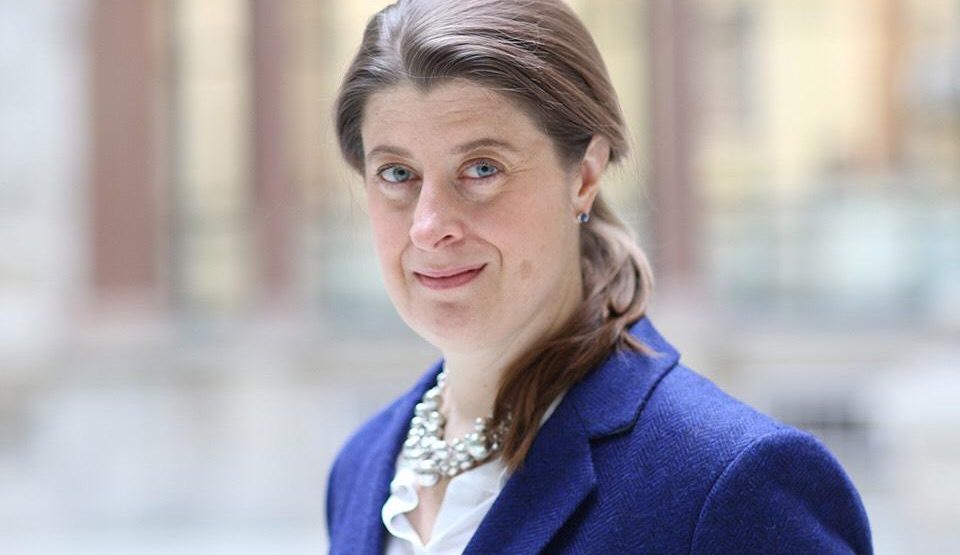The Government of the United Kingdom believes that there’s no need to change power in Montenegro, the UK Ambassador to Montenegro, Her Excellency Ms Alison Kemp, said in an interview with CdM. She emphasizes that Montenegro is an ally, partner and friend of the United Kingdom. Ms Kemp says that there are more British investors in Montenegro than it’s generally thought and that they always say Montenegro is a great country for business. She encourages British tourists to come and see the beautiful Montenegro. Ambassador Kemp particularly enjoys spending time in Podgorica and drinking ‘dojč’ coffee!
Here are the highlights of the interview with H.E. Ms Kemp …
CdM: The UK might leave the European Union (EU) soon. Does this mean your role in Montenegro would change after Brexit?
Kemp:
…
As long as the UK is a member of the EU, it will constructively and actively contribute to it and continue to back Montenegro in the process of reforms. We will continue with providing support even after leaving the EU. Just as our Prime Minister May said at the Western Balkans Summit in London in July 2018: “We are leaving the EU, but we remain fully committed to improving the prosperity and security of the Western Balkans and Europe as well, both now and in the future.”
Over the previous year, the United Kingdom invested over EUR 1.4 million in Montenegro by supporting a range of program activities. This year, we are increasing our investments beside the UK’s contribution to the European Union and the assistance programs that are being implemented in Montenegro.

CdM: Does the recent meeting of businessman Dusko Knezevic with the British MP from the ruling Conservative Party, Zac Goldsmith, suggest that the UK Government supports Knezevic’s demands “of an urgent change of power” in Montenegro? Does this mean the UK Government considers that Montenegro needs to change its leaders?
Kemp: No. Montenegro is an ally, partner and friend of the UK, and the British Government has strong relations with its counterparts in Montenegro. The UK Government remains committed to supporting Montenegro in implementing reforms to strengthen the rule of law, democracy and human rights. Effective anti-corruption procedures and strengthening of the rule of law are key signs of progress that depict Montenegro’s progress towards the EU membership.
CdM: How far Montenegro is from the EU membership? Can it become the EU member state by 2025?
Kemp: In May 2019, the European Commission will publish the progress report on Montenegro. It would not be appropriate to reveal the contents of the report. Despite the fact that the President of the European Commission, Mr. Junker, was clear in the statement that there will be no further enlargement of the European Union before 2025, this does not mean Montenegro cannot continue with the reform process that will lead to the conclusion of the chapters, so that the country might join the EU once all the requirements are met.
…
CdM: What do you think about the situation in the region? What are the main challenges that Montenegro has been facing and to what extent is Montenegro’s NATO membership important?
Kemp: Protests are organized across the region. These movements have different shapes and different catalysts. The United Kingdom supports the right to peaceful protests and I support the confirmation of such a statement by the Montenegrin Government, expressed during the in-country protests. Issues related to corruption, lack of transparency and freedom of media make the core of protests in the region. In case of Montenegro, these key issues represent the core of the accession process to the EU. I do not think that the boycott of the parliament is the most effective way in which opposition parties can represent the interests of their voters. I consider it’s important that everyone advocating for better future and strengthening of democracy is committed to supporting meaningful reforms and strengthening independent institutions.
…
First of all, the NATO membership is an important indicator of stability and strategic direction that is in line with democracy and inclusive development. In this regard, I appreciate the efforts that Montenegro has invested in cooperation with the countries of the region that expressed interest in joining the NATO Alliance.
…
As for Montenegro, joining the NATO Alliance represents a factor that contributes to an increase in the number of foreign investments. Foreign investments from the NATO member states have doubled. Montenegro’s NATO accession has shown that this country can successfully implement a complex process of reforms, which is another reason why I am optimistic about Montenegro’s accession to the European Union.

CdM: You have been in Montenegro for two years. Would you invite British investors to invest in Montenegro and launch business here?
Kemp: There are more British investors in Montenegro than it’s usually thought. According to the data of MONSTAT, the UK was the fifth largest source of foreign investments in 2018 (EUR 35 million). Last week I had a meeting with the British company Energean, which is on the FTSE 250 list (250 largest companies on the London Stock Exchange), and which is one of the two companies having the permission to explore hydrocarbon potential in Montenegro.
The United Kingdom is fully aware of the potentials of Montenegro, which is why the UK export fund offers over EUR 500 million of export credit support in order to strengthen business relations between the United Kingdom and Montenegro.
…

CdM: Is Montenegro attractive to British tourists? Why would you recommend them to visit our country?
Kemp: Over 130,000 Brits visited Montenegro last year and we hope this season will be equally successful.
…
I would like to encourage British tourists to try out some unusual experiences in Montenegro – canyoning near Old Bar, enjoying the time on Great Beach or Ada Bojana in Ulcinj, rafting through the Tara river or riding a bike down the Lim valley.
…
No visa liberalisation
CdM: Can we expect the UK to abolish visas for Montenegro nationals?
Kemp: Currently there are no plans for abolishing visas for Montenegro citizens. We recently upgraded the visa application system thus enabling applicants to submit the necessary documentation more quickly. The new application system is faster and available on mobile devices, while the additional documents are scanned and sent before going to the visa application center.
CdM: When you were cheering for ‘Budućnost’ during a basketball game residents were thrilled to see it. How do you feel here in Montenegro, do you like talking to the citizens and do you have a favorite place in Podgorica?

Kemp: Thank you. As an Ambassador, I consider that Podgorica is a good city to live in although it’s growing fast and its infrastructure is under great pressure.
…
I’ve been living here for almost two years and I had the hardest time to get used to the coffee bars which I now enjoy very much! Thanks to Podgorica now I really like drinking ‘dojč’ coffee!
I am glad to see that sports and culture are very important in Montenegro: since I came here, I had the opportunity to attend water polo, karate, basketball and soccer matches.
I spend most of my time in discussions with the decision-makers, public opinion makers and policymakers. I enjoy every opportunity I have to talk to Podgorica residents.
If we slightly expand the city borders, my favorite place in Podgorica is Lake Skadar national park. I am a huge fan of national parks in Montenegro which I consider to be a valuable source of national pride, but also a great opportunity to attract tourists.
…




